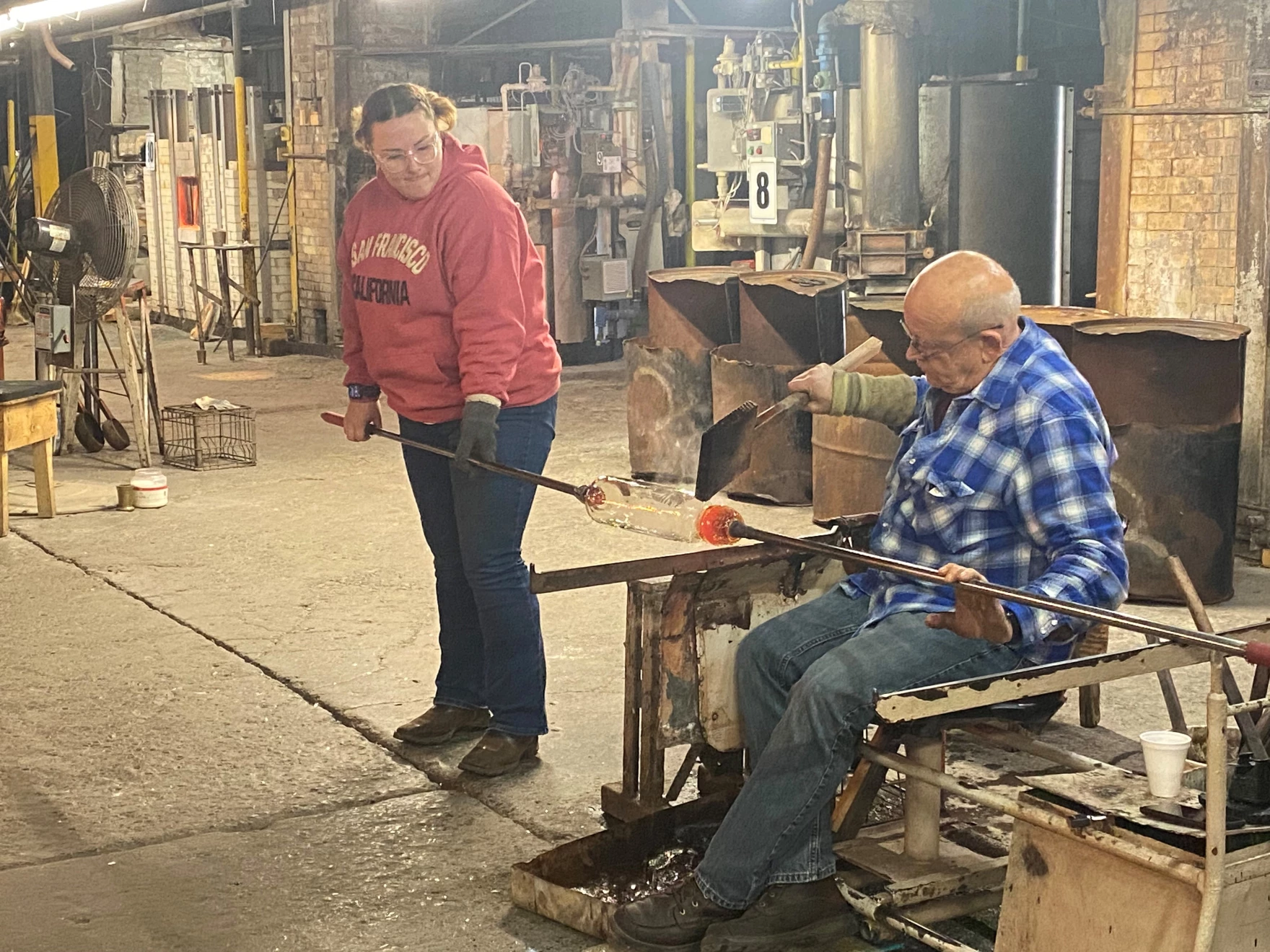Carpenter apprentice Brook Moyle always knew she wanted to make things.
“I love working with my hands,” Moyle said. “I like creating something. I like seeing my efforts build something.”
Moyle is a motivated person. She rode an electric bike from Fairmont to Elkins to make sure she made it to the first day of her apprenticeship. But Moyle said she didn’t think she had a chance at being a carpenter, or, at best, her dream was on the backburner while she worked other jobs in telemarketing and McDonalds. That is until she found West Virginia Women Work.
“They go through specific training courses, they go through almost all the trades, and then you get to kind of at least have the skills to pick something,” Moyle said. “If you do graduate from the program, you are kind of like put above the stock for anyone who did not, and tried to get into a union or a job or anything, because they have the connections to make that happen.”
Founded in 2000, West Virginia Women Work helps women explore, train, and secure employment in nontraditional occupations, especially the skilled trades.
“Especially in West Virginia, a four year degree isn’t for everybody,” said Carol Phillips, executive director of the program. “And just learning about, especially for women, the skilled trades, which maybe they didn’t learn about in school or at home just due to gender roles,” she said. “Teaching people that you can come through this pre-apprenticeship program, you can join union apprenticeships, private apprenticeships, enter directly into skilled trades positions and make, you know, twice what you might make as a nursing assistant or even a school teacher. Just letting women know that there’s opportunity.”
Earlier this month, Gov. Jim Justice announced $500 million for improvements to bridges across West Virginia. There are also several newly announced major construction projects, like the Nucor plant, that will need workers to make them a reality. For Phillips, the trained people from West Virginia Women Work are an obvious choice.
“We work with companies, unions, and groups on their equity planning,” she said. “If you’re going to need 500 workers for something in the next six months, where are you going to get those from? We want those to come from West Virginia. If you’re saying the workers aren’t here, maybe you need to look at a more diverse group of workers.”
West Virginia Women Work prepares women for those roles through the Step Up for Women Construction Program, a tuition-free employment-based skilled trade training program designed to prepare adult women for entry-level positions in the construction industry and registered apprenticeships.
Nichole Stephenson is the Charleston program coordinator for Step Up for Women Construction training. Before going through the program herself, Stephenson was in healthcare for 10 years, but wasn’t happy. Despite being exposed to the trades her entire life, she never considered it an option.
“All of the men in my family are tradesmen, every single one,” she said. “I held the flashlight for every man in my family. My dad always said, ‘I work this hard, so you don’t have to.’ What he didn’t realize, and I don’t think I realized at the time is, I loved it, I loved it.”
Choice is an important aspect of the program for Stephenson. Program students cycle through training in carpentry, electrical, plumbing and welding so that they can figure out what trade works best for them.
“This is a non-judgmental zone. So if you can’t hold a hammer, we teach you the proper way to do it. You don’t walk onto a job site and, ‘She doesn’t know what she’s doing,’” Stephenson said. “What we do as coordinators is really work with students and watch them and see where their gifts are, and you know what they really tend to do well, and they find enjoyment in. It’s not, ‘Well, I’m an electrician, because my dad was an electrician.’ It’s choices, we show them so many things.”
Building confidence is baked into the program. Students are also coached on what Stephenson calls “soft skills,” things like interviewing and budgeting for delays in the weather-dependent construction industry.
Lakeisha Hines is the Morgantown program coordinator for Step Up for Women Construction. Like Stephenson, she also went through the program while seeking out a more promising professional future.
“We want to get the safety with OSHA 10 out of the way first, so we make sure that they are safety conscious, because that’s the most important thing when you’re working in construction,” Hines said. “Then we kind of sprinkle in some of the soft skills along with the handling portions of the program.”
Students also get a chance to visit project sites and speak to program graduates. Hines said it helps students see the future they’re working towards past the 12 weeks of training.
“I think it’s empowering to them to see where somebody started, and a lot of those people have the same stories,” Hines said. “It starts with them actually applying and knowing that they can do the work, too. I think our program starts to get their self-confidence up, lets them know that they can do it. And these women tell their daughters that they can do it. And it’s just like a trickle down effect.”
The next program in Charleston and Morgantown starts Feb. 27 and is currently accepting applications.
